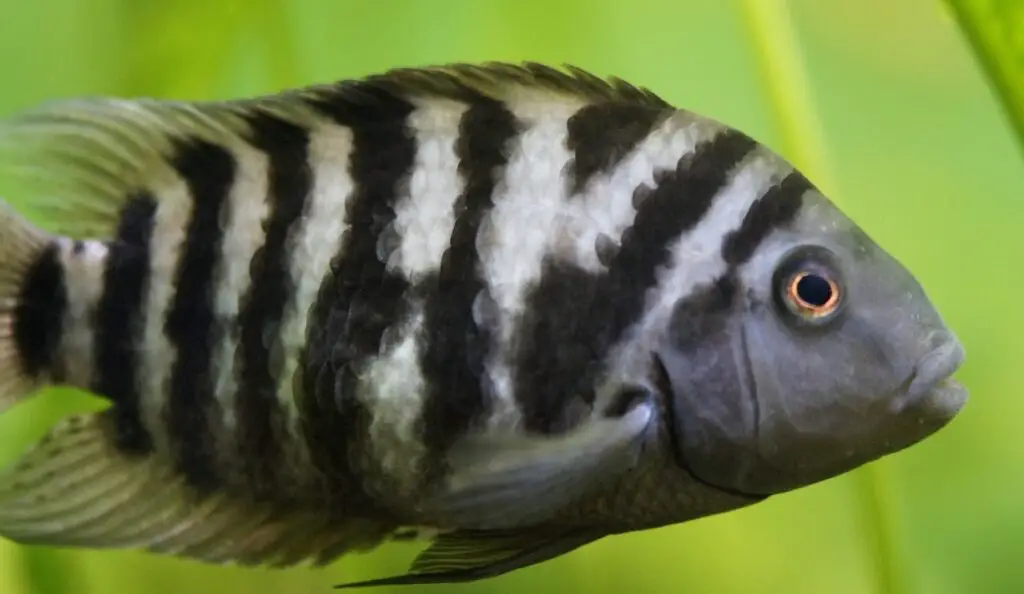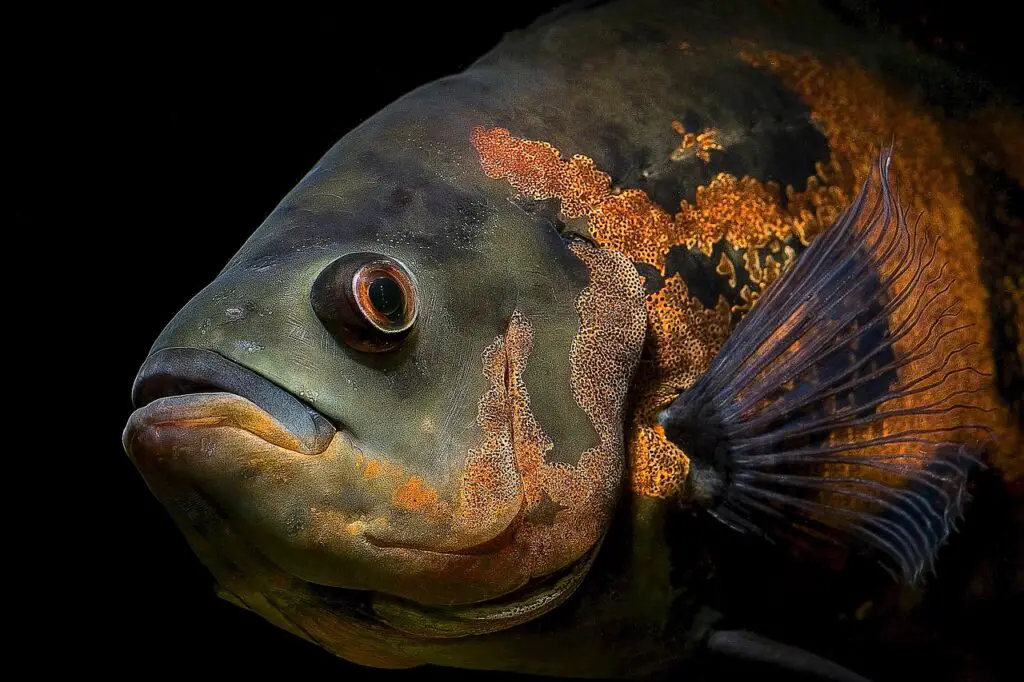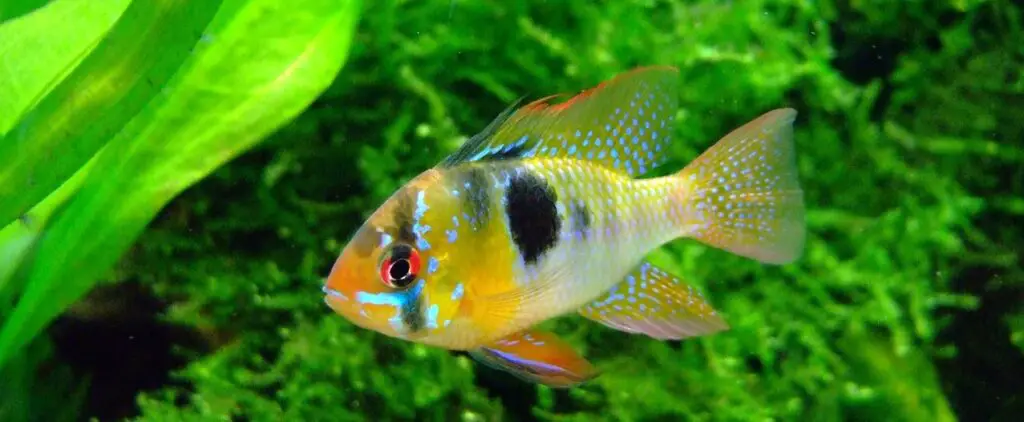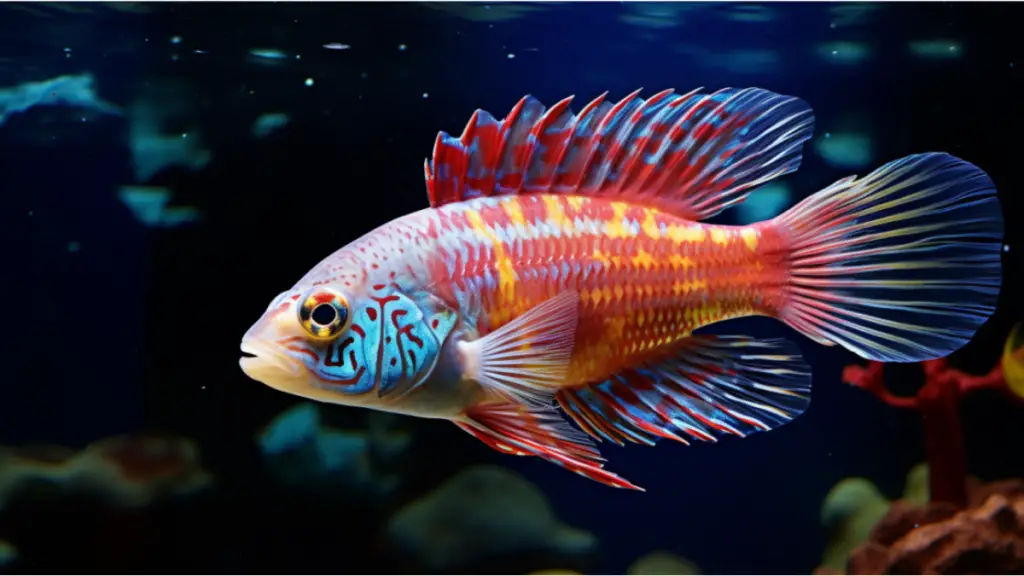You’re keen on cichlids, but do you know cold water’s a killer for these tropical beauties? When temperatures dip below 74°F, they’re at risk. Power outages pose a serious threat, dropping tank temperatures quickly.
Cichlids Can not live in cold water. Cichlids are native to tropical regions and require warm temperatures to thrive. Exposure to cold waters can cause stress, weaken their immune system, and make them vulnerable to diseases. Maintaining suitable water conditions is essential to ensure these vibrant fish’s well-being and health.
Don’t let your fish fall victim. It’s up to you to protect them. Dive into our guide to understand how cold water affects cichlids’ health and learn practical ways to safeguard your aquatic friends.
- Key Takeaways
- Understanding Cichlids' Natural Habitat
- The Necessity of Warm Temperatures for Cichlids
- The Cons of Cold Water for Cichlids
- How Cold Water Impacts Cichlids' Health
- Identifying Stress Signs in Cichlids
- The Impact of Temperature on Cichlids' Metabolism
- Ideal Water Temperatures for Various Cichlid Species
- How to Maintain Proper Water Temperature for Cichlids
- The Risk of Disease in Cold Water for Cichlids
- Temporary Drops in Temperature: Short Term Effect on Cichlids
- The Aftermath of Power Outages on Cichlids' Health
- Effective Measures to Protect Cichlids From Cold Water
- Myths About Cichlids and Cold Water
- Recommendations for Cichlids' Owners
- Frequently Asked Questions
- How Can I Safely Transport My Cichlids During a Cold Season?
- Are There Any Specific Species of Cichlids That Can Tolerate Colder Water Better Than Others?
- Is There a Recommended Diet for Cichlids to Help Them Survive in Colder Water?
- How Does Cold Water Affect the Breeding and Spawning Behavior of Cichlids?
- What Other Factors, Apart From Cold Water, Can Stress Cichlids and Weaken Their Immune System?
Key Takeaways
- Cichlids cannot live in cold water and need warm temperatures.
- Cold water weakens cichlids’ immune system and makes them prone to diseases.
- Cichlids become less active and sluggish and may forget to swim in cold water.
- Power outages can temporarily lower aquarium temperature, causing stress to cichlids.
Understanding Cichlids’ Natural Habitat
You’ve got to understand that cichlids come from tropical regions and can’t thrive in cold water environments. Their natural habitats are warm, vibrant ecosystems teeming with life. They’re accustomed to consistent, balmy temperatures, allowing them to flourish.
When caring for these creatures, it’s crucial to replicate their natural environment as closely as possible. The importance of warm temperatures for cichlids cannot be overstated. It’s not just about comfort, it’s about survival. Cold water can induce stress, weaken their immune systems, and even make them prone to disease.

The Necessity of Warm Temperatures for Cichlids
In maintaining a healthy habitat for your tropical fish, keep the aquarium’s temperature at a warm 74°F or 23°C. The impact of temperature on cichlids’ breeding behavior is significant, as they reproduce most effectively in warm, stable environments. Cold fluctuations can disrupt this process and stress your fish.
Proper acclimation when introducing cichlids to a new tank is also vital. Gradually adjust the fish to their new environment, ensuring the temperature aligns with their natural habitat.
| Impact | Cold Temperature | Warm Temperature |
|---|---|---|
| Activity Level | Low, sluggish | Active, vibrant |
| Breeding | Hindered, stressful | Effective, successful |
| Health | Weakened, prone to diseases | Strong, resistant |
The Cons of Cold Water for Cichlids
Keeping your tropical fish in chilly conditions can lead to severe health issues, as they’re native to warm climates, and their bodies aren’t equipped to handle low temperatures. Specifically, cichlids’ metabolism slows down in cold water, making them less active and susceptible to diseases.
It’s crucial for you, as a responsible aquarist, to identify stress signs in cichlids. Look out for sluggish behavior or decreased appetite; these are clear stress indicators.
Maintaining a comfortable water temperature, ideally not dropping below 74°F, is a simple act of service you can do for your fish. Remember, you’re not just keeping fish, you’re providing a safe and healthy environment for them to thrive. It’s about respect for their natural needs and ensuring their well-being.

How Cold Water Impacts Cichlids’ Health
Chilly temperatures can severely impact your tropical fish’s health, making them prone to various diseases. Here’s how cold water affects your cichlids:
- It makes them less active, even sluggish.
- It weakens their immune system, increasing susceptibility to diseases.
Identifying signs of stress and disease early is crucial. Look out for:
- Changes in behavior or appearance.
- Signs of discomfort or distress.
Preventing diseases is a key part of your role as a caretaker. You can achieve this by:
- Maintaining the aquarium temperature within the ideal range.
- Regularly monitoring for any signs of disease or discomfort.
Identifying Stress Signs in Cichlids
You’ll need to be vigilant for any signs of stress in your tropical fish, which could indicate an uncomfortable or harmful environment. Identifying stress signs early can make a difference in your cichlid’s health. So, what should you be looking for?
Watch out for changes in behavior, like reduced activity or a lack of appetite. Physical changes, such as color fading or rapid breathing, can also be a red flag.
Preventing cold water stress is key to keeping your cichlids happy and healthy. Remember, these tropical beauties need warm water to thrive. So, maintain a consistent, suitable temperature in their tank. It’s a small act of service that can greatly enhance your cichlid’s well-being.
The Impact of Temperature on Cichlids’ Metabolism
Having just explored how to identify stress signs in your cichlids, let’s now delve into understanding the effects of temperature on their metabolism.
The role of temperature in cichlids’ reproductive behavior is fundamental. Warm, tropical temperatures stimulate their breeding instincts, while cooler temperatures can inhibit this process. It’s essential to monitor your tank’s temperature to promote healthy reproduction.
Furthermore, did you know that temperature significantly impacts cichlids’ coloration? Their vibrant hues shine in warmer environments, making them a delightful spectacle. But in colder conditions, their colors may fade, indicating stress. So, you’re ensuring their survival and maintaining their aesthetic appeal when you keep the temperature optimal.
Ideal Water Temperatures for Various Cichlid Species
Different species of cichlids thrive at varying temperature ranges, so it’s crucial to understand the ideal conditions for each type you’re looking after. To ensure you’re serving these little swimmers optimally, you must invest in proper heating equipment for cichlid tanks. This ensures a consistent and comfortable environment for them to thrive.
| Cichlid Type | Ideal Temperature (°F) |
|---|---|
| African | 75-86 |
| American | 70-82 |
| Dwarf | 76-81 |
| Asian | 72-79 |
How to Maintain Proper Water Temperature for Cichlids
To ensure your fish stay healthy and active, it’s essential to maintain the right water temperature in their tank. Identifying signs of temperature fluctuations can be key to their survival when dealing with cichlids.
Symptoms may include sluggish movement or a lowered immune response, making them more susceptible to diseases. You should aim for preventing these fluctuations and maintaining stable water conditions.
Invest in a reliable heater and thermometer, regularly monitor the tank temperature, and adjust as necessary. If you notice any sudden changes, act quickly to rectify the situation.

The Risk of Disease in Cold Water for Cichlids
Having discussed maintaining the right water temperature for cichlids, let’s delve into the risks associated with cold water. Cold water negatively impacts a cichlid’s immune system, making it susceptible to diseases. Your role in serving these creatures involves understanding this risk and implementing disease prevention strategies.
| Cold Water Impact | Prevention Strategies |
|---|---|
| Weakens immune system | Maintain optimal temperature |
| Slows metabolism | Provide a balanced diet |
| Increases susceptibility to diseases | Regularly check for signs of illness |
Temporary Drops in Temperature: Short Term Effect on Cichlids
You’re likely wondering how brief temperature drops impact your fish, right?
Even temporary dips can cause significant stress to your cichlids.
It’s crucial to start raising the temperature back to normal as soon as possible.
For example, if you’re dealing with a power outage, you must be proactive in getting the heat back up.
This quick action helps to alleviate some of the stress on your cichlids, ensuring they remain healthy and comfortable.
Moreover, keeping a close eye on your fish following these unexpected changes is equally important.
Monitoring infections becomes key after a temperature drop, as your cichlids’ weakened immune systems might make them more susceptible to disease.
They can bounce back after these short-term challenges with your care and attention.
The Aftermath of Power Outages on Cichlids’ Health
After a power outage, it’s crucial that you closely monitor your cichlids for any signs of illness or stress. Preventing temperature drops immediately following the outage is of utmost importance. Their health may be compromised if the tank’s temperature dips below the minimal requirement for cichlids.
Now, let’s look at the table below:
| Situation | Stress Level | Action |
|---|---|---|
| Power outage | High | Monitor closely, prevent temperature drop |
| Temperature below 74°F | Very High | Heat the tank ASAP |
| Signs of illness | Extreme | Consult a vet immediately |
| Reduced activity | High | Check the temperature, observe behavior |
| Forgetfulness in swimming | Very High | Seek immediate help |
Your efforts to monitor cichlids’ health and maintain their environment can profoundly impact their well-being. Remember, you’re not just keeping fish, you’re nurturing lives.
Effective Measures to Protect Cichlids From Cold Water
To protect your fish from chilling temperatures, it’s crucial to maintain the aquarium’s warmth at all times. Remember cichlids’ natural habitat — tropical regions with warm water, and mimic these conditions in their aquarium. It’s about keeping your cichlids comfortable and preventing cold water stress, which can harm their health.
Invest in a quality heater and a thermometer to monitor the temperature consistently. Insulation can help maintain warmth during cold spells. If there’s a power outage, don’t panic. Wrap the tank in blankets and consider battery-operated heaters.
Myths About Cichlids and Cold Water
Let’s debunk some common misconceptions about these tropical fish and chilly environments.
You may think cichlids can adapt to cold water, but this is a fallacy. The impact of cold water on cichlid behavior is significant. It slows their metabolism, making them sluggish and susceptible to illnesses.
You might’ve heard they can tough it out, but that’s untrue. They hail from warm regions and need tropical temperatures to thrive. Cold water weakens their immune system, increasing the risk of diseases.
It’s essential to keep their habitat warm and comfortable. So next time you’re tending to your cichlids, remember: cold water isn’t their friend. It’s your responsibility to provide the best environment for them.

Recommendations for Cichlids’ Owners
You’ve got to ensure your tropical fish have the right temperature to stay healthy and active. As a proud cichlid owner, preventing diseases is crucial.
Your fish friends’ health depends on maintaining an optimal water temperature. Investing in proper heating equipment is a must. An aquarium heater will help keep your tank warm even during unexpected power outages.
Remember to monitor the temperature regularly. Too cold and your cichlids’ immune systems weaken, making them ill-prone. Be vigilant for signs of sluggishness or unusual behavior.
Serving others, it’s not just about humans. Your cichlids depend on you for their well-being. Do your part to keep them thriving in a warm, disease-free environment.


